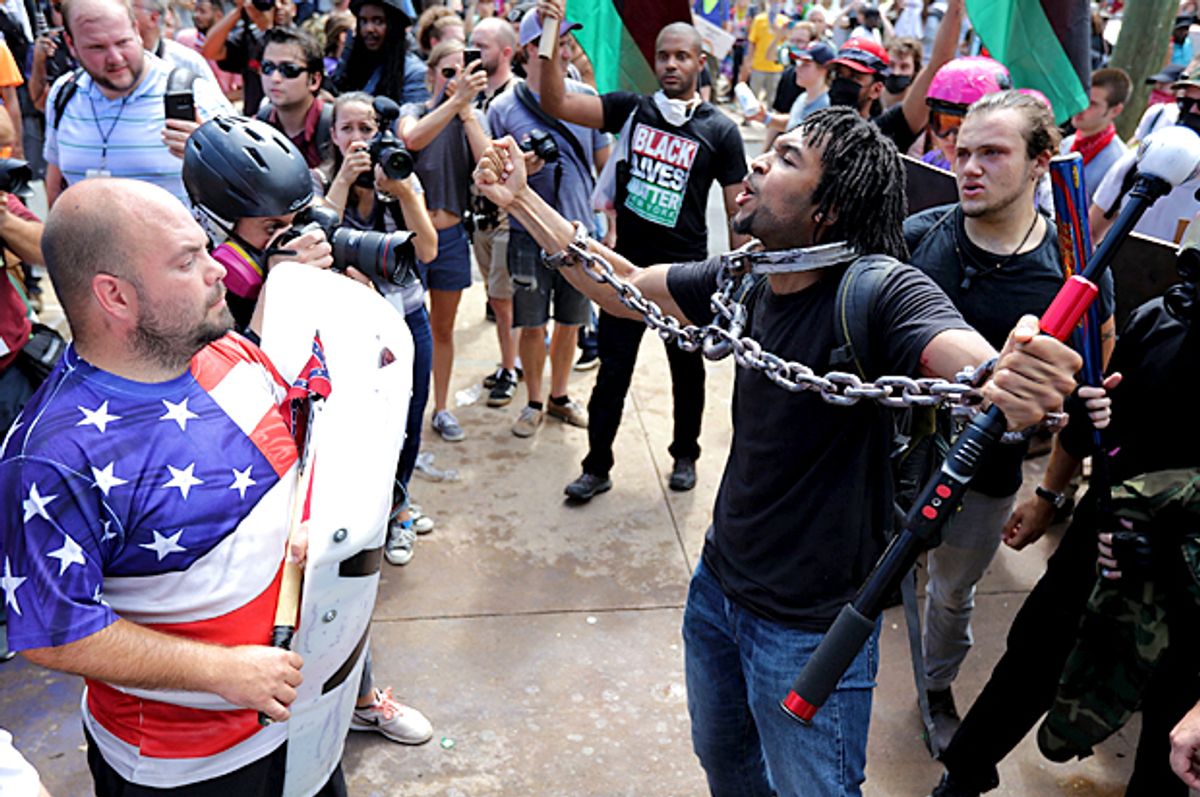On Tuesday, November 23, a jury in Virginia found that a group of White nationalists and White supremacists who organized the infamous Unite the Right rally in Charlottesville in August 2017 were guilty of a conspiracy — and the plaintiffs were awarded $26 million in damages. But reporting from the Associated Press stresses that collecting the money may be challenging, as some of the Unite the Right organizers are broke.
According to AP, "Whether they will be able to collect a significant chunk of that money remains to be seen. Many of the defendants are in prison, in hiding or have dropped out of the White nationalist movement. At least three of the far-right extremist groups named as defendants have dissolved. And most of the defendants claim they will never have the money needed to pay off the judgments against them."
One of those defendants is Matthew Heimbach, who co-founded a neo-Nazi group called the Traditionalist Worker Party with Matthew Parrott, another defendant in the case. AP reports that Heimbach "said he is a single father to two young sons, works at a factory and lives paycheck to paycheck." And White nationalist Richard Spencer, before the trial in the case, told a judge that the lawsuit has been "financially crippling" for him.
Want a daily wrap-up of all the news and commentary Salon has to offer? Subscribe to our morning newsletter, Crash Course.
AP notes, "Even with the many obstacles to collecting the full $26 million judgment, there are ways to secure at least some of it. Typically, plaintiffs' lawyers will seek court orders to seize assets, garnish wages and place liens on property owned by defendants."
Attorney James Kolenich, who has represented three of the defendants in the lawsuit, told AP, "I don't think any of them could afford to pay out of pocket these damages. We are going to do what we can to cut this down to size."
RELATED: Charlottesville trial has Nazis on edge as extremism expert decodes their online "doublespeak"
But Brian Levin, director of the Center for the Study of Hate & Extremism at California State University, San Bernadino, believes that plaintiffs may be able to collect at least some of the money because there are so many defendants in the lawsuit. In other words, payments here and there could add up.
Levin told AP, "The thing that's different about this case is you have a wide array of defendants. Some of them are currently locked up or destitute, but they might have assets, (insurance) policies or real estate that could be recoverable."




Shares